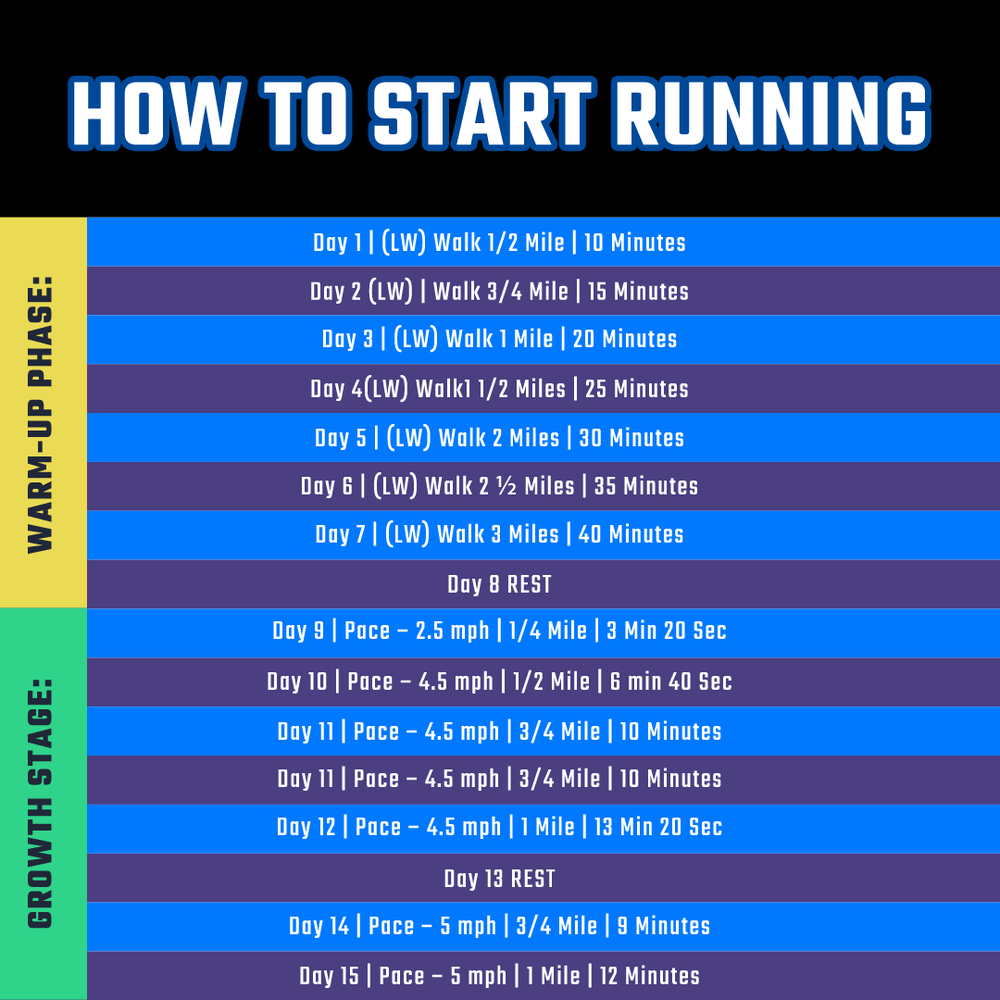Top 4 strategies to motivate yourself to run and stick with it

It takes around one month to engrain a behavior into your schedule. It might take up to 3 months for you to start seeing the results of your running routine.
This is a long time! You might get demotivated or tired, especially if the results come slow. Let’s check out the top 5 strategies for staying motivated, no matter what life throws at you.

Advertisement
Goal setting is a science. It might not be a precise science, but you will surely benefit from learning a useful formula that will allow you to find a challenging yet achievable goal.
SMART goal setting is an acronym that stands for:
- S for Specific. What needs to happen for you to know that you have achieved your goal?
- M for Measurable. How will you measure that goal?
- A for Attainable. What will you need to do to get there? Make a plan and set milestones that will help you track your progress.
- R for Realistic. Is it even possible to achieve it? Don’t try to prepare for an Ironman if you haven’t completed your first 5K yet.
- T for Timely. When do you intend to reach your goal?
An example of a SMART goal would be to “I want to complete 3 miles in under 25 minutes. I will train for 3-4 times a week, combining cardio, flexibility, and strength training. I will achieve this goal in the upcoming two months, right on time for the New York marathon.
#2 Up the stakes

Even though you should always compete with yourself, it’s sometimes smart to add a little outside encouragement. Write down your goal. Share it on social media. Let your friends and family know. Find someone who will help you stay true to your plan and accountable for it.
Ensure that the stakes are high enough for you to hurt if you don’t hold your end of the bargain.
Here are some ideas on how to add just a bit of extra motivation to your daily runs:
- Sign up for a race in 3 months and pay upfront if possible.
- Bet your friends $1000 that you can reach your running goal.
- Promise your significant other that you will let them pick the movies you watch together for the upcoming year.
- Publicly claim that you will achieve your goal, OR ELSE (*Fill this in with some embarrassing action you will complete if you don’t manage to keep up.*)
- Pamper yourself with an extravagant gift if you manage to achieve your goal within the timeline.
#3 Run for a higher purpose

Of course, you run with a cause. It might be trying to get fitter, boost your immune system, or lose some extra pounds. All of these reasons are perfectly fine since they are intrinsically motivating.
However, if you wish to up your game a bit, you could add some extrinsic motivation to the mix. Make sure that your running is not only beneficial to you but also your community.
Try joining one of the following activities and fun run for charity:
- Most of the local running events will be dedicated to bringing more awareness to a specific cause. Try to find a cause that you love or organize an event yourself!
- Solo running can be beneficial to others, too. Apps such as Charity Miles help you donate money to meaningful causes. Once you pick a charity and start running, corporate sponsors donate money to your chosen organization.
- If you are working in a bigger company, it is possible it already has a traditional charity run/event. Ask around, and start running with your colleagues.
#4 Get to the bottom of the problem

You might feel demotivated and dread your next run for numerous reasons, and most of them will not be due to laziness or other personal traits.
Here are the most common reasons why people stop enjoying their runs:
- Overtraining. Rest days are there for a reason. Each time you train, your muscles tear a bit. It’s necessary to allow them to heal and recover. If you are feeling down, get a nap.
- Injury. You should NEVER train if it feels painful. Mild discomfort helps you get out of the comfort zone and is generally accepted, but prolonged and piercing aches will lead to injury. Get some rest, and if it still doesn’t feel right, consult with your doctor.
- Uncomfortable sportswear. Your shoes must fit the terrain and your feet shape. Your clothes simply have to reflect the season. If you don’t cover the basics, you risk injuring yourself, which will lead to a prolonged period when you will not be able to train at all.
Before calling it quits, check if you can fix these common problems.
Run smart to run far








Comments (0)